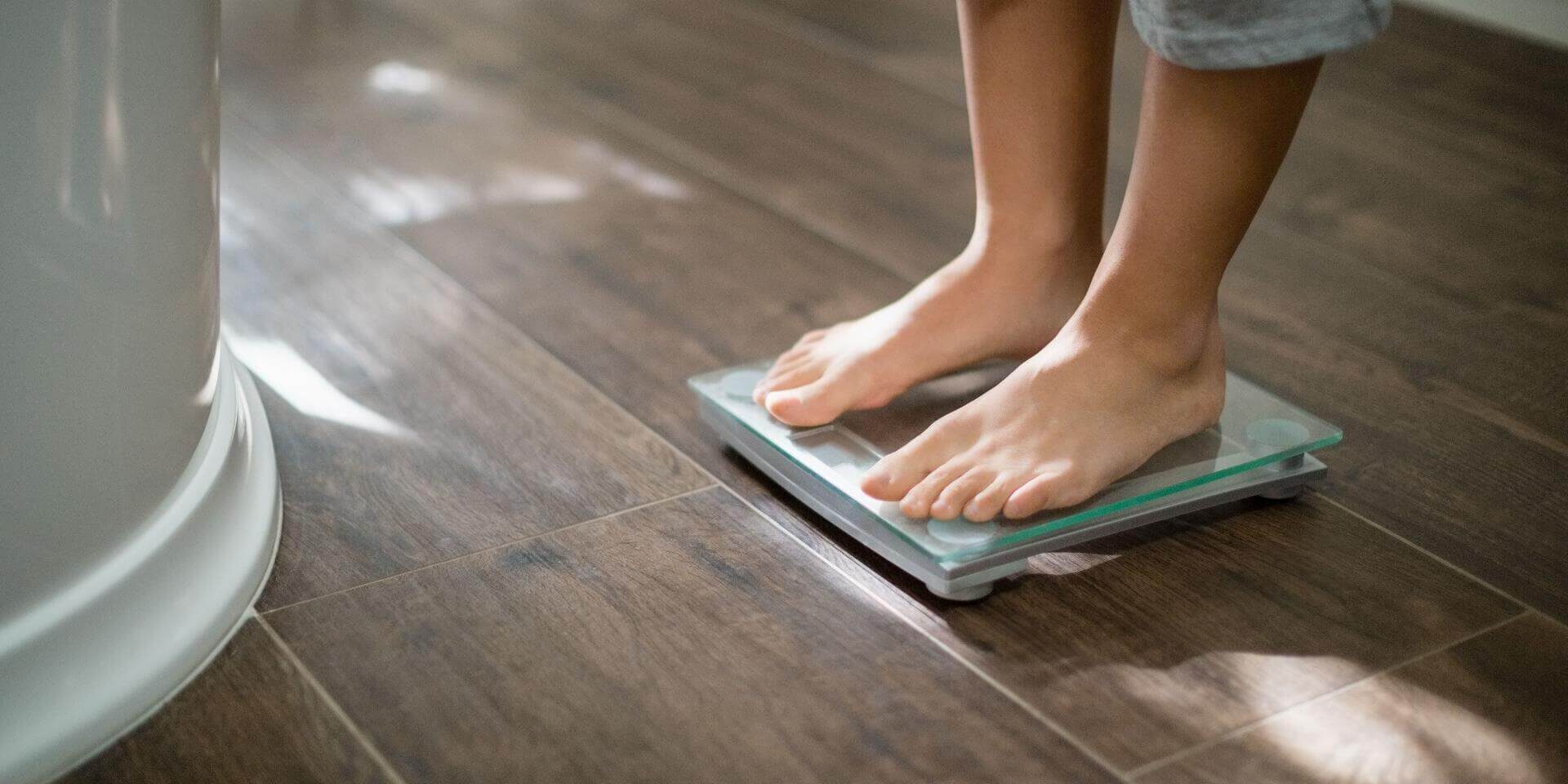When changing eating habits and exercising fails to bring satisfactory results, bariatric surgery is often the last resort for patients with advanced obesity. But while many people see it as a sure way to achieve dramatic weight loss quickly, various factors can lead to complications ranging from a weight loss plateau to weight regain. That’s why it’s important to be realistic about the entire process and its effectiveness and learn more about the possible reasons for not losing weight after weight loss surgery. This way, you’ll be able to take all the necessary and medically backed steps to achieve the desired results while taking care of your health at the same time.

£ 8,555 starting price
Gastric Sleeve surgery in the UK

£ 4.590 (All Inclusive)
Gastric Sleeve Surgery In Europe with KCM Clinic
Understanding Gastric Sleeve Surgery & Procedure?
Gastric sleeve surgery is a type of bariatric surgery that aims to help patients limit their food intake by limiting the capacity of their stomachs.
Gastric sleeve surgery serves a dual purpose by not only aiding in weight loss but also reducing the production of hunger hormones in the stomach. The reduction in hunger hormones effectively decreases appetite and cravings, thereby helping to prevent the impulses that often lead to weight regain.
This effect is achieved by surgically removing up to 80% of the pre-surgery stomach. The smaller stomach size forces you to consume smaller portions, helping you develop new eating habits and, in effect, lose weight.
A medical professional may recommend gastric sleeve surgery if you are classified as severely obese, with a body mass index (BMI) exceeding 40. Alternatively, if your BMI falls between 35 and 40 and you suffer from health conditions such as sleep apnea, high blood pressure, heart disease, or type 2 diabetes, this surgical intervention may also be advised.
The procedure itself induces rapid and highly effective weight loss, comparable to that achieved through gastric bypass surgery. Patients undergoing gastric sleeve surgery can expect to shed 50% or more of their excess weight within a span of three years. It is important to note that unlike the adjustable gastric band and gastric bypass, the sleeve gastrectomy is a permanent procedure that cannot be reversed.
By opting for gastric sleeve surgery, individuals can experience significant and sustainable weight loss while simultaneously curbing their appetite and cravings. This procedure offers a long-term solution to weight management, ensuring lasting results for those seeking a healthier lifestyle.
Top 7 Reasons Behind Not Losing Weight After Gastric Sleeve Surgery
#1 Bad Eating Habits
Undergoing bariatric surgery alone isn’t enough to fight obesity, and it has to be complemented by implementing healthier eating habits and a healthy lifestyle. Losing weight requires changing portion sizes and the type of foods you eat. You’ll be given a detailed post-surgery diet plan by a dietitian, and you must adhere to it, especially when it comes to the size and frequency of the meals you eat. The first weeks following the operation require a liquid diet, but even after switching to solid foods, you need to pay attention to what you eat and avoid spicy and heavy meals.
#2 Unhealthy Lifestyle
You need to realise that bariatric surgery is only one step of your weight loss journey, not it’s final stop. Falling straight back into old habits that led to your problem with excess body weight in the first place can take away all the benefits of gastric sleeve surgery and result in regaining the lost pounds quickly. And remember that it’s not all about having a balanced diet! Your physical and mental state go hand in hand, so make sure to stay active, and if you feel that the weight loss process puts a strain on your mental health, don’t hesitate to look for specialist help as well.
#3 Failing to Follow Your Doctor’s Recommendations
While bariatric surgeries, including gastric sleeve or gastric bypass surgery, are commonly recognised as very safe and effective procedures, it’s important to keep in mind that all surgical interventions carry a risk of complications. Luckily, you can limit it significantly by following your doctor’s orders and suggestions before and after surgery.
- Take medications, vitamins, and supplements for as long as recommended, and don’t go off them before consulting a medical specialist first.
- Follow your surgeon’s and dietitian’s advice on the type and amount of food you should eat to lose weight following surgery.
- Exercising and being physically active is a great option if you’re looking for significant weight loss, but introducing a challenging and strenuous exercise routine too soon after surgery can be detrimental to your health. Ask your doctor about the type of activities appropriate for each stage of your recovery.
#4 Lack of Exercise
One of the most frequently cited reasons for obesity is lack of exercise. A sedentary lifestyle that’s slowly becoming the new norm for our society means that many people consume more calories during the day than their bodies can burn. That’s why physical activity is an essential part of a healthy and effective weight loss process. Of course, you need to be careful with the type of activities you choose, especially during the healing period, but even simple things such as taking a walk instead of driving to work can be really beneficial. And once you fully recover, try to find time for regular exercise in your daily routine.
#5 Consuming More Calories Than Your Body Needs
The aim of this new diet is not only to facilitate weight loss but also to ensure that your body gets enough protein and vitamins to heal properly, thus limiting the risk of complications. To keep on losing weight, stick to recommended meals and avoid heavily processed and calorie-laden foods such as fast foods, snacks, and sweets. Pay attention to the signals your body is giving you – you should stop eating once you feel full. Otherwise, you’re just consuming more than you really need and, in effect, can not only stop losing weight but actually start gaining weight again.
#6 Not Giving Your Body Enough Time to Heal
You cannot expect to lose all the excess weight overnight simply because your stomach was surgically reduced. In order to get reliable information on how much weight you can lose and how fast, you should talk with your doctor before the operation. Give your body time to adapt and heal. It’s important because by putting too much strain on your organism and trying to speed up the weight loss process by eating less than recommended or exercising harder, you can actually achieve the opposite results and end up not losing weight after gastric sleeve surgery.
#7 Other Health or Emotional Reasons Behind a Weight-Loss Stall
If you’re following the doctor’s recommendations to the letter, but you’re still experiencing a weight loss plateau, it’s possible that there are other physical or mental health factors affecting your results. In such a situation, it’s best to consult your doctor and look for potential causes such as hormonal issues, stress, sleep problems and post-gastric sleeve surgery complications.
Some Other Reasons People Don’t Lose Weight After a Gastric Sleeve Surgery
There are several factors that can hamper weight loss after gastric sleeve surgery. These include:
Non-adherence to the recommended diet
This is one of the most common reasons why people fail to lose weight. If you don’t follow the diet plan that you’ve chosen, you’re not going to see results. It’s important to be honest with yourself about your eating habits and make a commitment to sticking to the plan.
Inadequate protein intake: Protein is essential for muscle preservation and satiety. When you don’t eat enough protein, your body breaks down muscle tissue for energy, which can lead to weight loss. Additionally, protein helps you feel full, so eating enough protein can help you eat fewer calories overall.
Consumption of Alcohol
Alcoholic beverages can be high in calories, which may impact weight loss efforts. It’s important to be aware that a single alcoholic drink can contain up to 150 calories. After the gastric sleeve surgery, it’s advisable to limit your alcohol intake or even consider avoiding it altogether to support your weight loss goals.
Stalling Weight Loss Progress
Weight loss may sometimes plateau even after a successful gastric sleeve operation. However, there is no cause for concern as consistent adherence to healthy habits can overcome these plateaus. If you have been diligently following your diet and exercise routine for a few weeks without observing any noticeable results, it is important not to give up. Ensure that you are actively tracking your progress and making necessary adjustments to your plan.
Tips for Success After Gastric Sleeve Surgery
After undergoing gastric sleeve surgery, it is essential to follow a structured plan to promote weight loss and maintain a healthy lifestyle. Here are some tips to help you on your weight loss journey after gastric sleeve surgery:
Portion control: Gastric sleeve surgery reduces the size of your stomach, limiting the amount of food you can eat at one time. Pay attention to portion sizes and avoid overeating to prevent discomfort and promote weight loss.
Gradually progress your diet: After surgery, your diet will initially be restricted to liquids and then gradually progress to soft and solid foods. Follow the recommended diet progression to allow your stomach to heal and adjust to its reduced size.
Stay hydrated: Drink plenty of water throughout the day to stay hydrated and support your body’s functions. Avoid drinking with meals, as this can fill up your small stomach pouch quickly and reduce nutrient absorption.
Eat mindfully: Chew your food thoroughly and eat slowly to avoid discomfort and prevent overeating. Mindful eating helps you recognize when you are full and satisfied.
Keep a food journal: Tracking your food intake can help you stay accountable and identify patterns or triggers that may lead to overeating or poor food choices.
Exercise regularly: Incorporate regular physical activity into your routine, as it plays a significant role in weight loss and overall health. Start with low-impact exercises, and gradually increase the intensity and duration as you become more comfortable.
Seek support: Join a support group or work with a therapist or counsellor who specialises in weight management. Emotional support can be valuable during your weight loss journey.
In conclusion, the notion that weight loss is impossible after gastric sleeve surgery is indeed a myth. Gastric sleeve surgery is a proven and effective weight loss method for individuals struggling with severe obesity. However, it is important to have realistic expectations and understand that the weight loss process is gradual rather than immediate. Patients must adhere to the recommended diet and lifestyle changes to achieve the desired results.
By addressing these factors and making necessary adjustments to one’s diet, hydration, and exercise routine, individuals can optimize their weight loss journey after gastric sleeve surgery. It is crucial to remember that gastric sleeve surgery is a tool to support weight loss, and success ultimately lies in the individual’s commitment to adopting healthy habits and making sustainable lifestyle changes.
Frequently Asked Questions (FAQ):
Is It a Myth That You Won’t Lose Weight After Gastric Sleeve Surgery?
There is a common misconception surrounding gastric sleeve surgery that suggests individuals won’t experience weight loss after the procedure. However, it is important to clarify that this notion is indeed a myth. Gastric sleeve surgery is a proven and effective weight loss method for those struggling with severe obesity. A gastric sleeve procedure involves reducing the size of the stomach, which restricts the amount of food that can be consumed. This leads to a reduced caloric intake and subsequent weight loss.
Another common misconception is that weight loss occurs quickly after a gastric sleeve procedure. However, gastric sleeve surgery is not a miracle weight loss treatment. It is designed to eliminate excess body weight gradually and safely, rather than immediately. As a result, patients should have realistic expectations for gastric sleeve weight loss after the procedure, particularly in terms of a weight loss timeline.
Can I Expect to Lose Weight After a Gastric Sleeve Surgery?
The amount of weight loss after gastric sleeve surgery varies from person to person. However, most people can expect to lose at least 50% of their excess weight within the first 18 to 24 months after surgery. Some people lose even more weight, up to 70% of their excess weight.
The amount of weight loss that a person experiences after gastric sleeve surgery depends on a number of factors, including their starting weight, post-surgery diet, age, lifestyle, and existing health conditions.
It is important to note that gastric sleeve surgery is not a magic bullet for weight loss. It is a tool that can help people who are severely obese lose weight and improve their health. However, it is still important to follow a healthy diet and exercise after surgery in order to maintain weight loss.
At KCM Clinic we provide patients with comprehensive care and support throughout their weight loss process and post-gastric sleeve surgery convalescence. You can count not only on our professionalism and expertise but also on the latest surgical techniques for optimal effectiveness and minimal risks.
Send Request
Register
Visits, hospital procedures
Bariatric Surgery Center
Plastic Surgery Center
Spine Surgery Center
Dental Clinic
OMEGA Imaging Diagnostic Center
Work hours
KCM Clinic Wrocław
Chat KCM Clinic
Locations
KCM Clinic Jelenia Góra
KCM Clinic Wrocław
Parking








